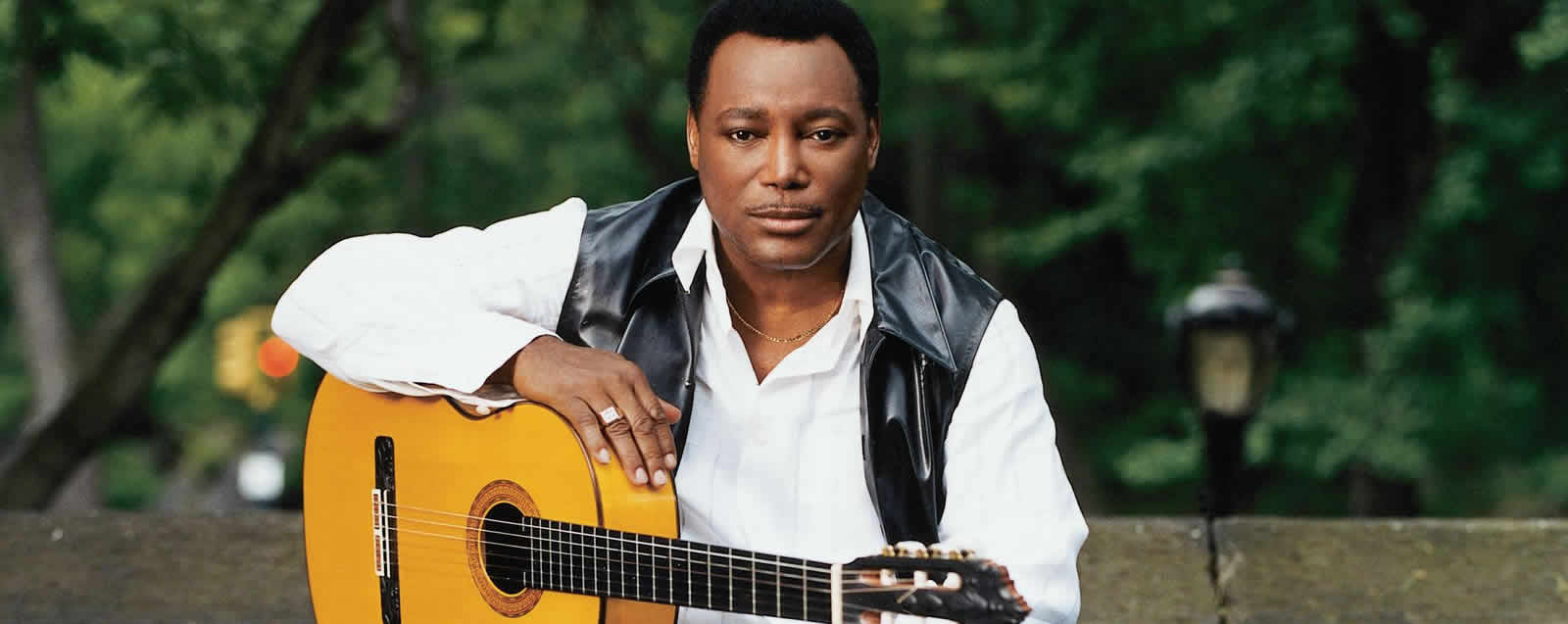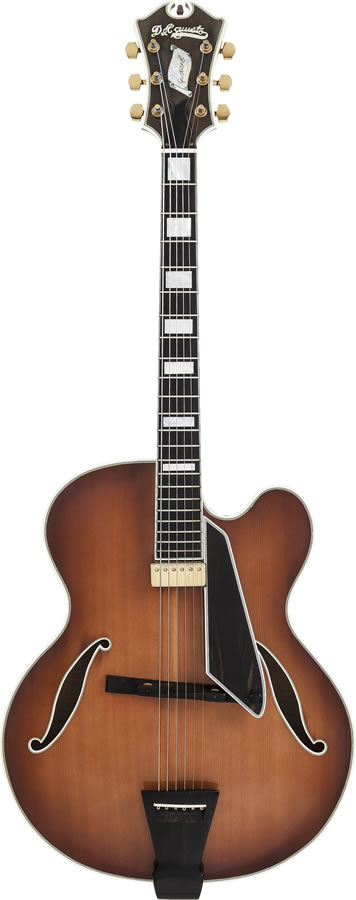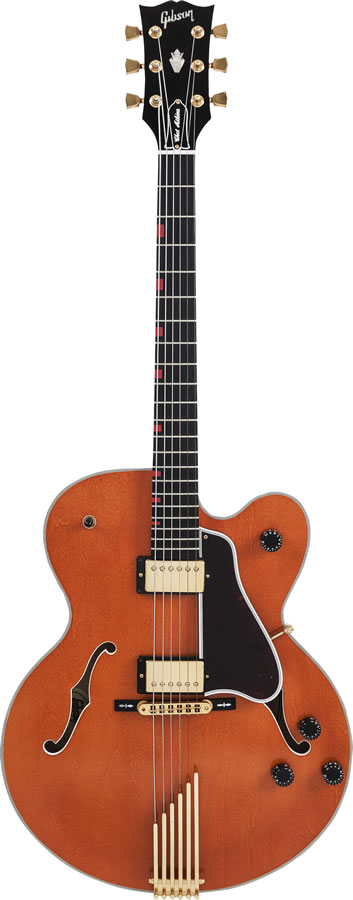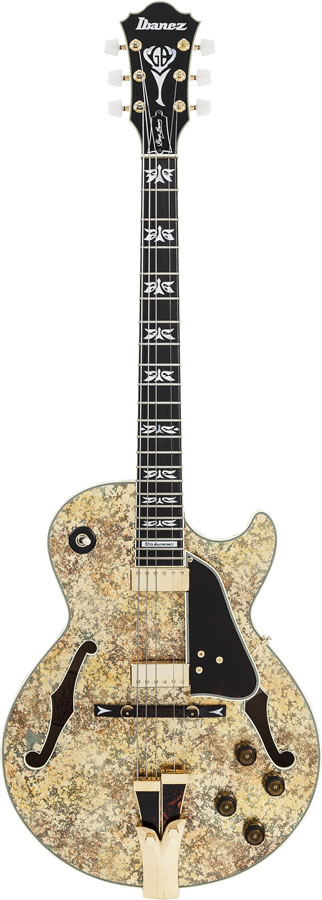JAZZ LEGEND RECALLS HIS EARLIEST GUITAR, AND EXPLAINS WHY HE’S PARTING WITH HIS SPECIAL PIECES
By Hector Cantú
George Benson clearly remembers his first guitar.
When he was 15, the Pittsburgh native excitedly told his father about a six-string at the local pawn shop. “I kept crying about it,” says the Grammy Award-winning jazz guitarist, “so he said, ‘Let’s go take a look at it.’
EVENT
MUSICAL INSTRUMENTS SIGNATURE® AUCTION 7168
May 25, 2017
Live: Dallas
Online: HA.com/7168a
INQUIRIES
Mike Gutierrez
214.409.1183
MikeG@HA.com
To request a catalog, call 866.835.3243 or visit HA.com/Catalogs
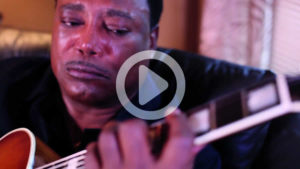
EXCLUSIVE VIDEO
George Benson talks about his career and upcoming auction.
“So we went down to the pawn shop … and he walked around the window to see the guitar from two or three different sides, and he said, ‘You know what? I can make that!’”
They returned home and Benson drew the guitar on a piece of paper. “Then my father traced it onto this piece of oak wood from my mother’s oak chest and it took him a whole day to carve it out. He broke blade after blade.”
Shortly afterward, Benson carried the instrument to his first gig. “It was a record hop, because I was with a singing group then, and when the guy saw me, he said, ‘What’s that thing you got in your hand?’ I said, ‘That’s my guitar.’ He said, ‘Where’d you get it?’ I said, ‘My father made it,’ and he stopped the record hop! … The kids said, ‘What’s going on?’ and he said, ‘I just want you to see this guitar. His father made it for him!’
“That was the beginning.”
A lot’s happened in the 60 years since that show. Today, Benson has sold millions of records, performed for millions of fans, and recorded some of the most beloved jazz and soul songs in music history, including This Masquerade, On Broadway and Give Me the Night.
His latest studio album is Inspiration: A Tribute to Nat King Cole. USA Today praised Benson for “his smooth vocals [that] make this homage unforgettable.”
Benson’s powerful influence on music, and jazz in particular, is undeniable. “George Benson is responsible for hundreds, if not thousands, of guys playing pop jazz in the ’70s and ’80s,” says Heritage Auctions guitar specialist Dave Hinson. “He basically is the Eric Clapton of jazz. He made the crossover from jazz to pop and presented it to a larger audience.”
The music legend talked to The Intelligent Collector from his Phoenix-area home, where he lives with wife Johnnie Lee. He delved into his career, his heroes and the upcoming auction of guitars from his personal collection.
You’re touring quite a bit. You have upcoming shows in Spain, Germany, Switzerland…
That’s the way I live. That’s normal. I’m amazed at what people will do to get us into their venues. I tried to retire 20 years ago, and then my career changed drastically. Everybody offered us the moon. So I said, “Maybe this isn’t a good time to retire.” If you’re in the music business, you’ve got to be touring, because that’s what keeps your ideas going and keeps you fresh and keeps you on people’s minds.
Do you remember the first guitar you picked up and played?
The first guitar I played was when my stepfather met my mother. I was 7 years old and he was a guitar player. So he got his guitar and amplifier out of the pawn shop and we moved into a house that had electricity. Our first house did not have electricity. The first thing we had to do in the new house was get light bulbs. And then he plugged this amplifier in and it was a miracle, that guitar going through that little wire coming out of a box on the other side of the room! It took me for a loop! So I sat with my back pressed up against that speaker that was vibrating through my body. That was an Epiphone Emperor, a very special guitar. A great guitar.
Do you remember the first guitar you actually purchased at a music store?
When I started buying guitars, I would go to the stores where they sold used guitars. I remember giving a guy, he wanted $99 for the guitar and he let me put up $30 or $35 as a down payment. I went back 25 years later because I felt guilty that I’d never [gone back and] paid him [in full] for the guitar. I went to the store, I don’t think the same cat was there, but I told him the story and he looked up the records and said, “Mr. Benson, I can’t find your name in here.” And he said, “Hey, get out of here, man, you don’t owe me nothing!”
So later, when you had the money, what kind of guitars were you buying?
I kinda lost interest in guitars because I realized I could play anything after playing all the junk I had. Remember, my first guitar was a crude instrument that my father made. Anything with six strings on it, I could play the devil out of it! So I didn’t worry about the quality of the instrument. I finally realized it’s the musician, basically, who makes the difference.
So now you have a deal with Ibanez to design guitars. They make the GB Signature Model Series…
I’ve been with them for 40 years. When I signed with them, they had no identity at all. Like a lot of guitar companies, they copied Gibson and Fender. They had no original designs that I knew of. So when I signed with them, I said, “Your company makes great instruments, better than most I know of, but you need original designs.” They said, “You have any ideas?” And I said, “Oh, yeah.” Since then, I think I have about 15 or 16 or more designs for Ibanez. And now they are the No. 2 or No. 3 company in the world.
You’re auctioning some guitars from your collection. Why now?
Two reasons. They’re fun to play when you have an instrument that you know is one of the finest instruments on the planet. But that only goes so far, because you have to keep it in the closet. It’s like a man with a beautiful woman, but he can’t be seen with her! Because so many people are trying to take her off your hands! Especially crooks! I’ve had guitars stolen, so I know!
Then they keep telling you that if you’re storing guitars, you have to have a room with the right humidity. You know I don’t have time for that! So I’ll have a fabulous guitar, but I don’t want it to fall apart in the case. It’s better to be in the hands of somebody who appreciates it.
You actually auctioned some guitars several years ago?
There’s a joy in seeing someone get an instrument that he never thought he would have, especially a guitar from people like Wes Montgomery. My friend Pat Metheny really wanted that guitar, so he went to the auction and he got a good price on it. He was happy to tell me, “George, you know I got the Montgomery guitar.” I said, “Oh man, that’s wonderful! How much do you want for it? Because we’ll buy it back!”
You worked with Chet Atkins in 1985. What’s the story behind the Gibson he gave to you?
The memory of Chet Atkins is with me all the time. He’s in my mind and in my heart, so I don’t need a piece of wood sitting in the closet. I don’t know what’s going to happen to it, so I said maybe somebody will really appreciate it. How I got it? Well, every now and then, he’d call me and say, “Hey man, whatcha doing? Come on down.” He’d take me to some catfish restaurant. So one day, a box came in the mail. I said, “What the heck is that? Looks like a guitar.” I opened it up and sure enough, it was from Chet.
And you have a prototype “Kimono” guitar from Ibanez? That sounds pretty unique.
[Ibanez] decided to do something different, so they took one of my [GB Signature Model] guitars and they overlaid it with what looks like a Japanese kimono. It’s very pretty. Everybody loves it. So I said, “Man, make me a couple of these.” They said, “We don’t want to make a whole lot of these.” I said just make me a couple, man, that’s all I want! It’s super rare.
You have a 1980 D’Aquisto guitar in the auction, too?
Mr. Jimmy D’Aquisto was probably the best of the best. His uncle is considered the best of the best. His name was John D’Angelico. But in the latter days of Mr. D’Angelico’s life, his nephew Jimmy was helping him make guitars and in the process he became a great luthier himself. And I think he surpassed his uncle. I have played some of his guitars and they are the finest instruments I’ve ever had in my hands. I almost hate to let it go, but I also hate to see it just sit in a case, although it looks brand new, like it was made yesterday.
So are these guitars hard to part with?
They’re my babies, man! They’re all over my office, two offices here, and if somebody comes to the house who’s a guitar player, we go to that closet and we have guitars all over the kitchen, the den. They’re special.
When I read articles about you, I see your name mentioned quite a bit as someone who has influenced generations of musicians, from rockers to rappers. How does that make you feel?
I used to think youngsters were not interested in me or didn’t know me, but that changed as I started traveling around the world. I would go to a Caribbean tour and I would meet some of the cats on the airplane, some of the Caribbean musicians, and they would do a respect thing. “Respect, man, respect.” I thought, “They don’t even know me!” That was wrong. They do know me.
I remember being young myself and having a desire to meet different musicians. For instance, one cat was Johnny Smith, a great guitar player, and Jimmy Smith, the most fantastic keyboardist, organist on the planet. And I met most of my heroes. When I moved to New York, I met all the superheroes … John Coltrane, Grant Green and Kenny Burrell, Wes Montgomery. So I met everybody and became friends with the youngster, who was younger than me, Pat Martino. As a kid, he was a giant musician and we became the best of friends. And we still are! So I feel like I’m making a difference, making a contribution that will be felt for years.
On your website, I see, right across the top, a banner showing you were recognized by the National Endowment of the Arts as a Jazz Master. Why is that such an important recognition for you?
It connects me with all those wonderful people I’ve met over the years who were really the people responsible for putting me in the position. Wes Montgomery and Grant Green and Kenny Burrell, Pat Martino … when I see it, I think about them. My goal in life was to get an audience. I wanted to be like Nat Cole, you know, somebody where you mention their name and people just love it. It brings warmth. That’s the kind of person I wanted to be.
Finally, do you collect anything other than guitars?
It’s amazing, but every time I open a drawer, I see something that shouldn’t be in it. “What is this? It looks like it might be valuable!” And sure enough, it turns out to be valuable. I’ve got watches, in the tens of thousands! I never wear them. I don’t even know where they came from, man! So one day, maybe they’ll be in an auction, too.
HECTOR CANTÚ is editor of The Intelligent Collector.

